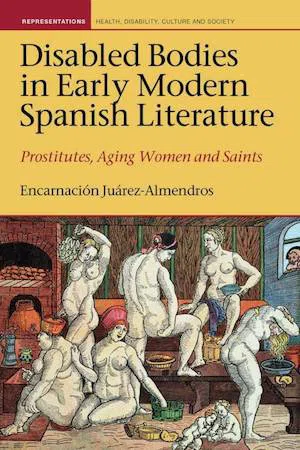
Disabled Bodies in Early Modern Spanish Literature : Prostitutes, Aging Women and Saints
- English
- PDF
- Available on iOS & Android
Disabled Bodies in Early Modern Spanish Literature : Prostitutes, Aging Women and Saints
About this book
Disabled Bodies in Early Modern Spanish Literature examines the concepts and role of women in selected Spanish discourses and literary texts from the late fifteenth to seventeenth centuries from the perspective of feminist disability theories. It explores a wide range of Spanish medical, regulatory and moral discourses, illustrating how such texts inherit, reproduce and propagate an amalgam of Western traditional concepts of female embodiment. It goes on to examine concrete representations of deviant female characters, focusing on the figures of syphilitic prostitutes and physically decayed aged women in literary texts such as Celestina, Lozana andaluza and selected works by Cervantes and Quevedo. Finally, an analysis of the personal testimony of Teresa de Avila, a nun suffering neurological disorders, complements the discussion of early modern women's disability.
Frequently asked questions
- Essential is ideal for learners and professionals who enjoy exploring a wide range of subjects. Access the Essential Library with 800,000+ trusted titles and best-sellers across business, personal growth, and the humanities. Includes unlimited reading time and Standard Read Aloud voice.
- Complete: Perfect for advanced learners and researchers needing full, unrestricted access. Unlock 1.4M+ books across hundreds of subjects, including academic and specialized titles. The Complete Plan also includes advanced features like Premium Read Aloud and Research Assistant.
Please note we cannot support devices running on iOS 13 and Android 7 or earlier. Learn more about using the app.
Information
Table of contents
- Cover
- Contents
- Acknowledgments
- Introduction
- I. The Creation of Female Disability: Medical, Prescriptive and Moral Discourses
- II. The Artifice of Syphilitic and Damaged Female Bodies in Literature
- III. The Disabling of Aging Female Bodies: Midwives, Procuresses, Witches and the Monstrous Mother
- IV. Historical Testimony of Female Disability: The Neurological Impairment of Teresa de Ávila
- Conclusion
- Works Cited
- Index